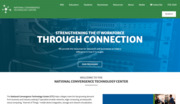Increasing Outreach with Videos
Combining images, dialogue, and music makes video a uniquely powerful medium—one that can capture imaginations and stir emotions. Videos are an excellent tool for boosting engagement with your project or center. Videos can highlight recent materials or resources, interviews with students or PIs, and show the impacts of your work on your community through a new medium. Depending on the available software, most computers have internal video editing software such as Apple iMovie or Window Video Editor. If you have an iPad available, LumaFusion is an award-winning and inexpensive ($30) option, that supports multi-track video editing and offers professional-quality transitions and effects.
Although video production can seem expensive and technically daunting, there are many user-friendly options. Several open-source video editing software programs are available for free download online.
- Open Shot is an easy-to-use and free program that can be used across Linux, Mac, and Windows.
- ShotCut is another free, multi-platform video editing program. Shotcut can be easily used by dragging and dropping files into the program.
- Canva is a free online program for graphic design and video editing. Canva has easy-to-use templates for Youtube, TikTok, and various other types of videos.
Looking for an easy way to start using videos? ATE's Student Success stories are available for use by your organization to engage audiences and boost outreach. These videos highlight how ATE has improved community college students' lives. They can be used as part of your outreach plan to promote your project or center and ATE programs in general. Consider taking the first steps to make videos part of your outreach.








